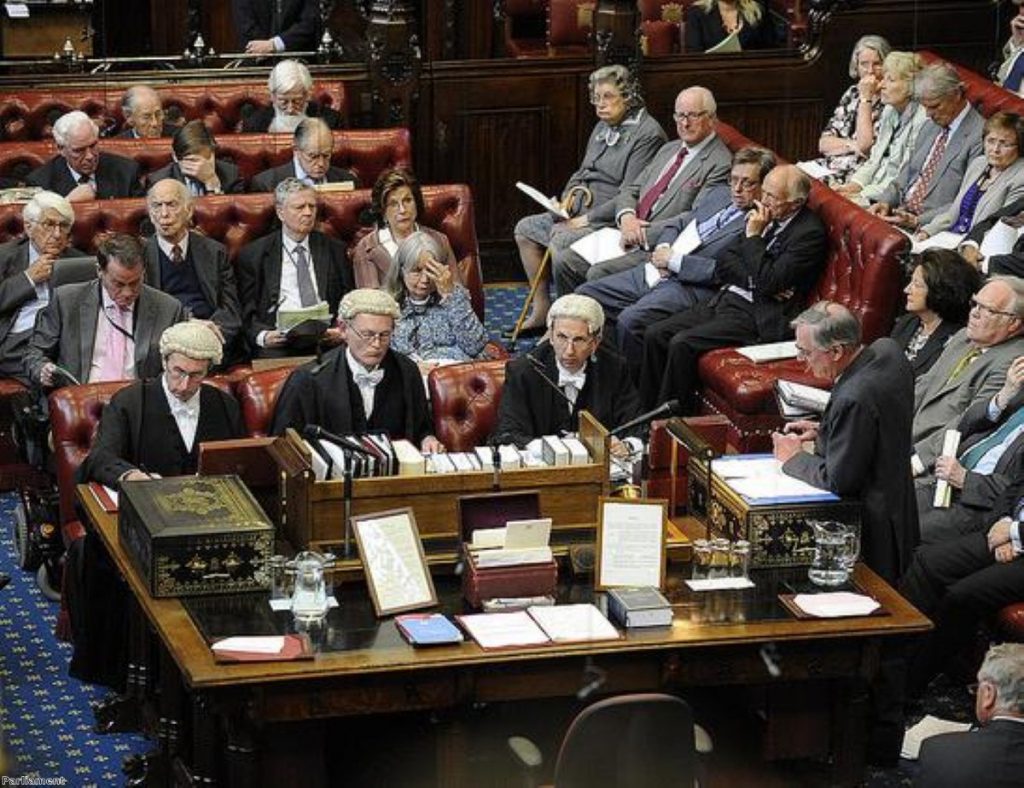Boundary changes: An utterly unsubtle delaying tactic angers peers
I've just come from the chamber of the House of Lords, into which peers had packed to vent their spleen over the increasingly entertaining boundary changes farrago.
Today was supposed to be the day when the Tories got one in the eye from the Lib Dems for messing up Lords reform. How ironic, then, that it was in the upper House where Nick Clegg and co planned to make their putsch. Lib Dem peers had planned to support a Labour amendment to the electoral reform bill currently in the upper House. This amendment would scrap the boundary changes for this parliament, doing away with David Cameron's chance of an extra 20 MPs at the next general election. That might be enough, potentially, to see him over the finishing line and into Downing Street in his own right. Which is why the Tories are very keen to do anything they can to save the legislation.
So keen was Strathclyde to avoid defeat on the amendment that he has chosen to put off debating the entire bill. Last Wednesday, having scrapped consideration of the electoral registration and administration bill, he told peers: "I expect the business to be taken next Monday." That expectation, as was obvious to all members of the Lords staring down at their order papers, had not been met.
Avoiding dodgy votes by the somewhat unusual expedient of simply not holding them is frowned upon in the Lords, which takes these matters extremely seriously. It was what prompted the lengthy condemnations from angry peers which I witnessed just now. Lord Crickhowell said the move "flies in direct conflict to every single bit of advice the constitution committee of this House has advised". Baroness Farrington of Ribbleton went further. She pulled out the big guns, going so far as to call the leader of the Lords… "discourteous". Bam! In the polite world of the Lords, this was the equivalent of waltzing over to the government frontbench and slapping Strathclyde with a wet fish.


Jan Royall, the leader of the opposition in the Lords, had made her own thoughts on the matter clear earlier:
"Parliament is not the plaything of government. In particular, parliament is not the playing of a political party in trouble. By yet again pulling consideration of this bill because of the amendment being proposed to it by distinguished members from all sides of your Lordships’ House, the Conservative party, for party political reasons, is seeking to subvert the role and practice – the constitutional role and practice – of this House."
Strathclyde's responses seemed more likely to provoke laughter from the Labour benches than sympathy.
"The discussions I hoped would take place have not been completed," he explained in response. Rather than having a debate which "may prove unnecessary", he thought it would be better to keep deferring the debate altogether. With the prime minister off in the Middle East for the first half of this week, the wait is likely to go on for a while.
Eventually, of course, this impasse will have to be resolved. Strathclyde is merely playing for time while his political masters argue the toss. His game-playing shows that Conservatives within government are doing all they can to win this tussle.
So does a further attempt by the Tories to use the rulebook to further their own ends. Labour's amendment, proposing that the boundary changes were better put off until 2018, has been ruled to be out of order, as it does not relate sufficiently directly to the bill before the Lords. This is now a matter of dispute – and it shows that ministers are determined to use the rules of the game in any way they can. If they succeed, they will have succeeded in changing the rules of a much bigger game: the contest for Downing Street which, by a curious coincidence, happens to be exactly two years and six months away.









